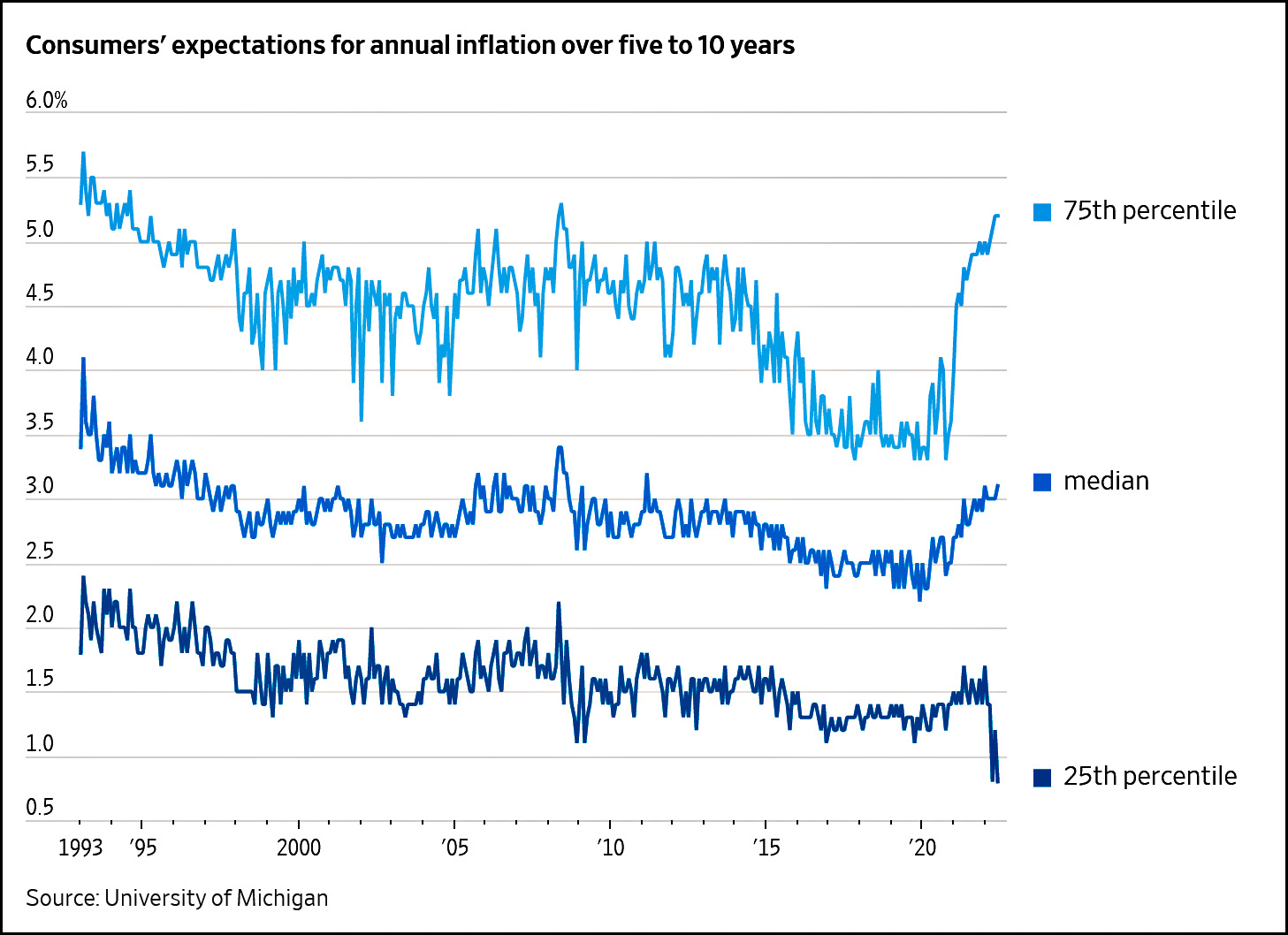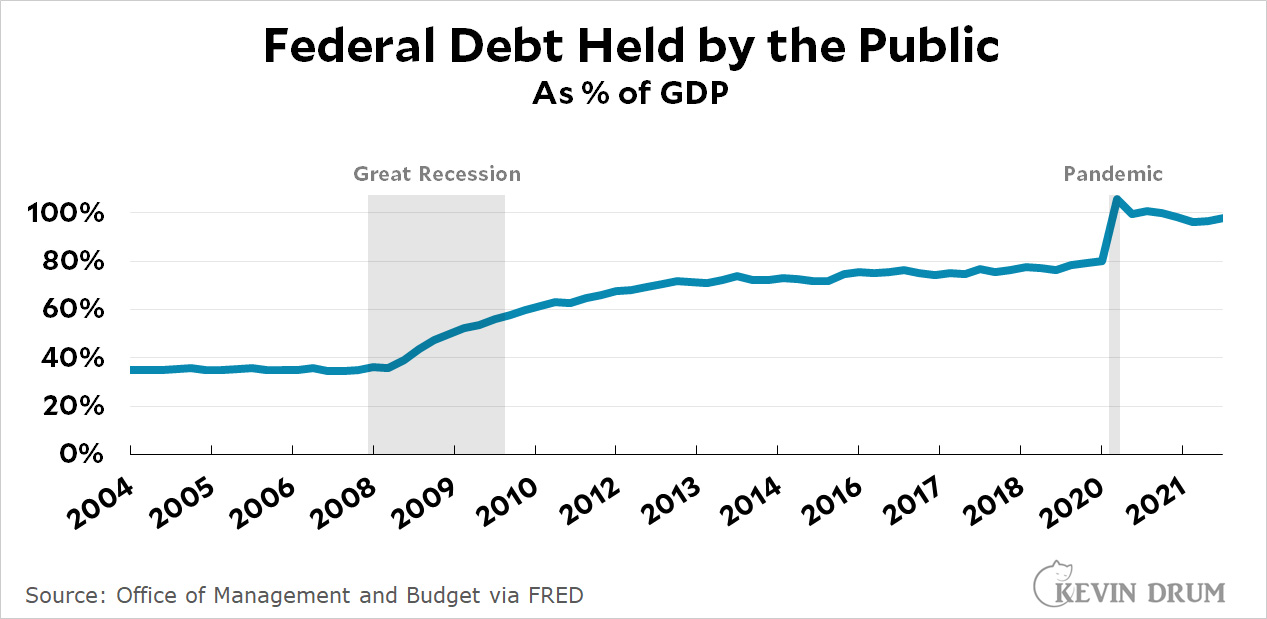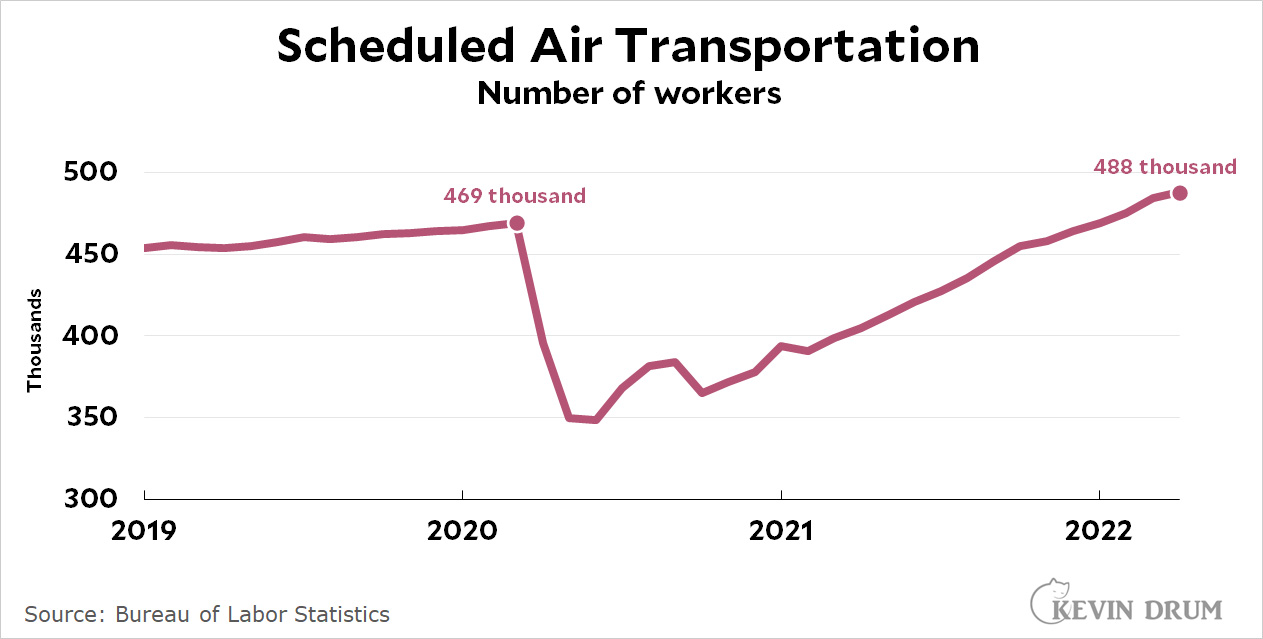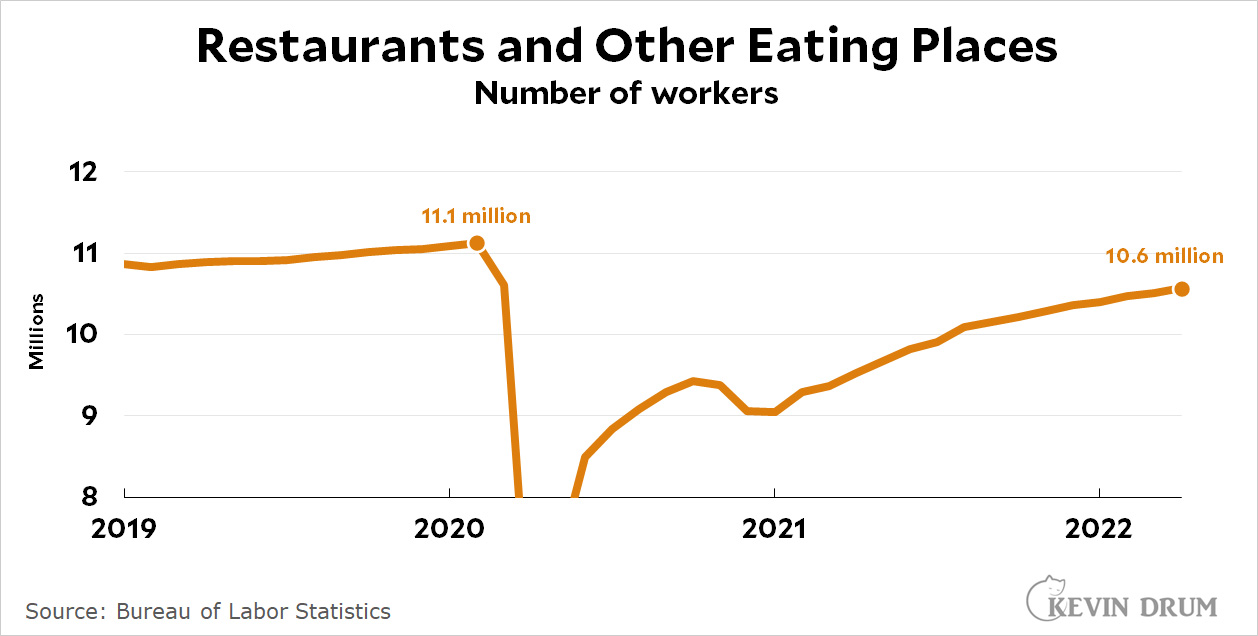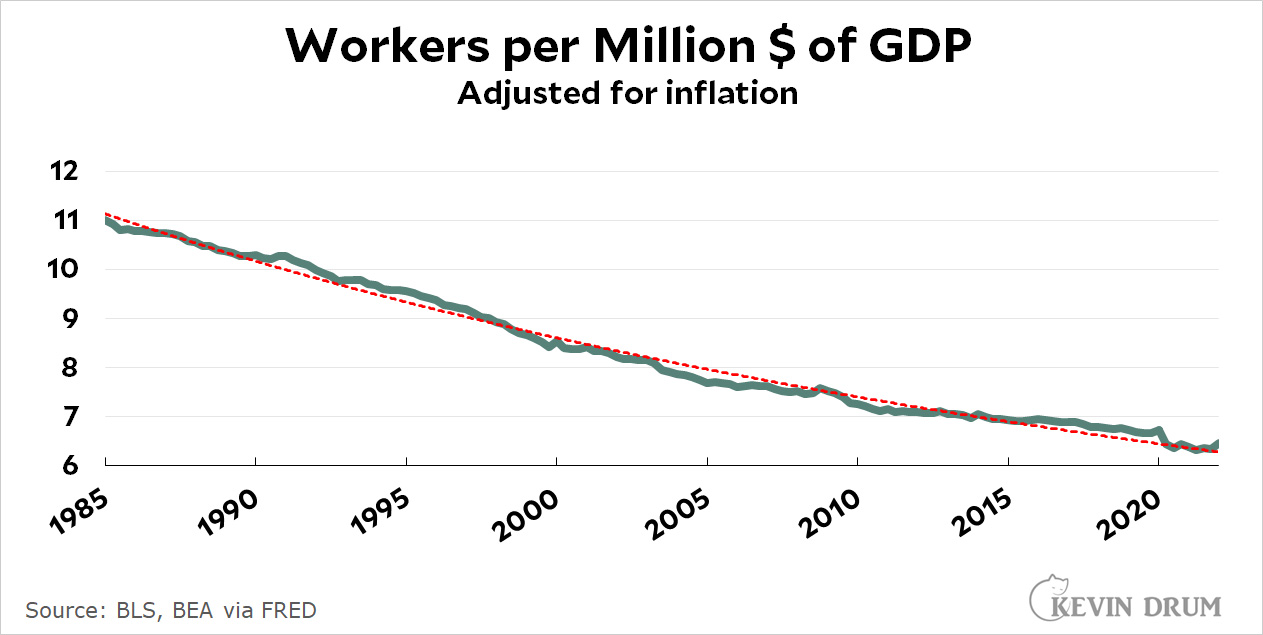The New York Times wrote today about a moderate Republican woman who loathed the Dobbs decision removing the constitutional right to abortion:
As Gov. Gretchen Whitmer prepared to kick off a round-table discussion about abortion rights at a brewery recently, Alisha Meneely sat at one corner of the table, feeling politically abandoned.
“This scares me a lot,” said Ms. Meneely, 43, who described herself as a “pro-choice Republican” in an interview shortly before the Supreme Court overturned Roe v. Wade. A few days later, as many Republican officials embraced the far-reaching implications of the decision, she was unequivocal. “This,” Ms. Meneely said, “is not my party.”
Let's think out loud about this. Toss out a few guesses. Run some ideas up the ol' flagpole and see if anyone salutes.
The target for Democrats is obviously center-righties like Meneely. The true believers won't give us the time of day and will never vote for us. So what do we know about these people?
First of all, feelings about abortion are just those: feelings. Science is of no help here. Science can tell us that a human blastocyst is created by a human egg and human sperm. It can tell us when a heart starts beating. It can tell us when brain activity is detected. It can tell us when a fetus is viable outside the womb—although this changes as technology improves. But it can't tell us whether a fetus deserves the same full protection of the law given to a human who's been born. That's an issue for religion, the law, and public opinion.
So why do some people feel that abortion is wrong? We liberals are fond of saying that it's because conservatives are misogynists who want to control women's bodies and punish them for having unapproved sex. And that's probably of true of some of them. But among moderate conservatives, there are really only two things we know for sure:
- A large majority of moderates on both sides have feelings that are basically shaped by shape. That is, they don't think a little ball of cells looks human but they do think that a sonagram taken at 18 weeks does. That's why they mostly approve of Roe v. Wade. They don't care if it makes legal sense, they only care that it jibes with their intuition.
- When Dobbs was finally handed down—that is, when endless talk turned into a real, concrete attack on abortion—support for abortion rights went up. We political junkies all expected Roe to fall after Trump appointed three right-wing justices to the Supreme Court, but ordinary people didn't. They were shocked and surprised when it happened.
These seem like the natural points of attack for liberals who want to persuade conservatives to support broader abortion rights. But how? It's easy to imagine how we can take advantage of scary conservative ideologues. They're scary. But how do we take advantage of the shape thing? After all, it makes a lot of sense for a pattern-matching species like us. If it looks human, it probably is human.
I don't know. The obvious solution is to support abortion until, say, 18 weeks but not after. But that's not what progressives believe.
We could try to convince people that "looks like" isn't "is." But that's a pretty tough row to hoe. I'm not sure how we could go about it.
We could begin a campaign to emphasize how a 20-week fetus isn't like a newborn baby.
We could splash social media with pictures of the 2001 fetus, emphasizing how creepy and alien it is.
Anybody else have some ideas? I know that lots of people have been trying to figure this out for decades, but with Roe gone it gains a certain salience that it didn't have before. What's our best way of handling it?



